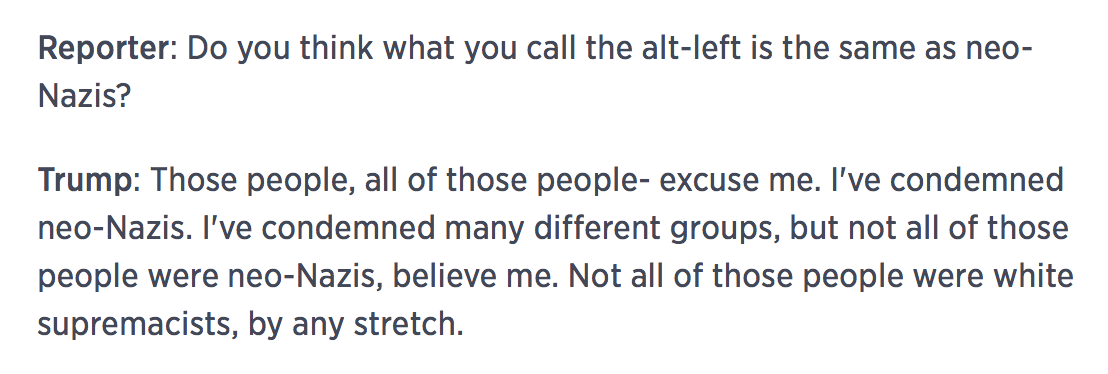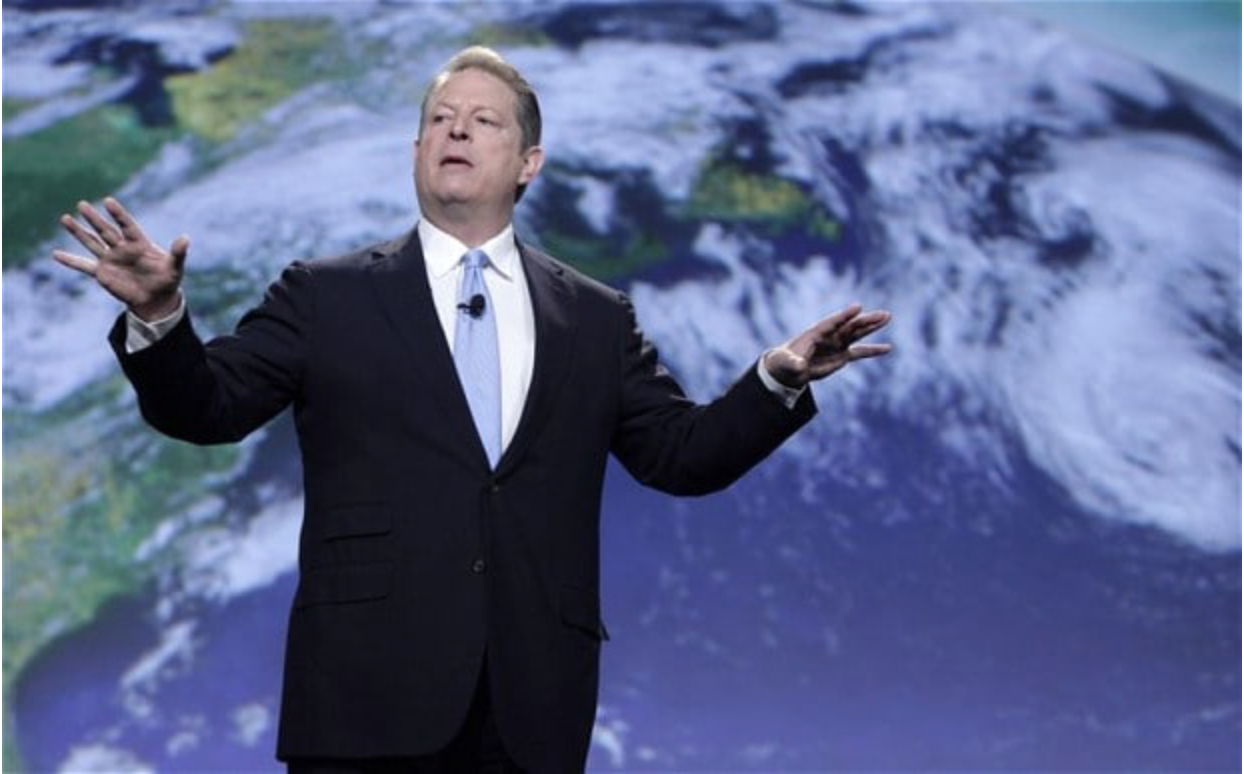|
Film about Michael Brown and Black Lives Matters opens same weekend as Charlottesville white nationalist march Sabaah Folayan's documentary Whose Streets? opened to solid business over the weekend, earning $43,804 from 21 locations, according to audience measurement company comScore. That was good enough for a third place finish among all nonfiction films in theatrical release. The film centers on the response to the case of Michael Brown Jr. -- the unarmed African-American teenager killed in 2014 by a white police officer in Ferguson, Missouri. It was already a timely film, made only more so by a violent rally over the weekend in Charlottesville, Virginia by white nationalists, neo-Nazis and KKK members. Counter-protester Heather Heyer was killed when an alleged white supremacist ran his vehicle into a crowd who opposed the racist marchers. Two state troopers were also killed on Sunday when their police helicopter went down while monitoring the violence. Video captured by the Vice News showed the torch-bearing white supremacists chanting "Whose streets? Our streets!" an obvious retort to the same chant heard at previous demonstrations protesting the death of unarmed African Americans at the hands of police (it is this chant, of course, that Folayan took as the title of her film). Vice video also showed protesters shouting "Black lives matter!" at white marchers, who countered with their own shout, "White lives matter!" At a press conference Tuesday, President Trump seemed more concerned about defending some of the white marchers in the torch-bearing crowd, instead of those who demonstrated against hate. "There was a group on this [counter-demonstrator] side — you can call them the left, you've just called them the left — that came violently attacking the other group, so you can say what you want but that's the way it is," he declared emphatically. "I do think there's blame -- Yes. I do think there's blame on both sides... You have some very bad people in that group [white nationalists], but you also had people that were very fine people on both sides." Folayan's film speaks to the privileging of narratives that put the concerns of whites first, which Trump's comments seemed to do. "Every day Americans experience a mediascape that humanizes whiteness, delving into the emotional lives of privileged white protagonists while portraying people of color as two-dimensional (and mostly negative) stereotypes," Folayan wrote in a director's statement. "Nowhere was this more apparent than in the case of Mike Brown, who, in spite of being college bound & well regarded by his community, was portrayed as a "thug" and a "criminal." For this reason, it is essential that Black people be the ones to tell our own true stories." Related: Whose Streets? premieres at SundanceElsewhere at the doc box office, the sequel to An Inconvenient Truth recorded another strong performance over the weekend. An Inconvenient Sequel: Truth to Power directed by Bonni Cohen and Jon Shenk easily maintained its hold on number one, taking in another $815,947 according to comScore. In three weeks of release the documentary about Al Gore's continued pursuit of progress against climate change has made over $2.3 million. Step stepped into the second position again, earning another $265,505, according to comScore. Its two-week total stands at $465,871. Amanda Lipitz directed the film, which "chronicles the trials and triumphs of the Senior girls on the high school's Step Team as they prepare to be the first in their families to go to college – and the first graduating class of The Baltimore Leadership School for Young Women," the film's website states.  A still photo from "Step," directed by Amanda Lipitz. Photo courtesy Impact Partners/Stick Figure Prods. A still photo from "Step," directed by Amanda Lipitz. Photo courtesy Impact Partners/Stick Figure Prods. As noted, Whose Streets? came in third. Fourth place went to The Farthest: Voyager in Space, a documentary about the Voyager space probe program that stands as one of NASA's greatest accomplishments. Emer Reynolds directed the film, which has earned widespread praise from critics. Fifth place was taken by The Last Dalai Lama? directed by Mickey Lemle. The film explores whether the 14th Dalai Lama, aged 82, will choose to be reincarnated upon his eventual death. Weighing on his decision is China's demand to play a pivotal role in naming any successor to the current Dalai Lama. The Dalai Lama has said he may decide to be reincarnated outside of Tibet, which has been under Chinese subjugation since the 1950s. The Dalai Lama himself has lived in exile in India since 1959. Related: Mickey Lemle on his Dalai Lama doc -- idea of China choosing next DL is 'absurd' |
AuthorMatthew Carey is a documentary filmmaker and journalist. His work has appeared on Deadline.com, CNN, CNN.com, TheWrap.com, NBCNews.com and in Documentary magazine. |
- Home
- News
- Videos
-
Galleries
- 2019 Tribeca Film Festival
- Full Frame Documentary Film Festival
- 2019 SXSW Film Festival
- SXSW 2018 Gallery
- 2019 Sundance Film Festival
- Outfest 2018 Photo Gallery
- Outfest 2017
- Sundance 2018 Photos
- 2017 LA Film Festival
- 2017 Cannes Film Festival
- Tribeca Film Festival 2017
- SXSW 2017 Gallery
- 2017 Berlin Film Festival
- Sundance 2017 Gallery
- 2016 Los Angeles Film Festival
- Cannes Film Festival 2016
- SXSW 2016 Gallery
- Berlinale 2016 Gallery
- Sundance 2016 Gallery
- Filmmaker Gallery
- About
- Contact
Proudly powered by Weebly
- Home
- News
- Videos
-
Galleries
- 2019 Tribeca Film Festival
- Full Frame Documentary Film Festival
- 2019 SXSW Film Festival
- SXSW 2018 Gallery
- 2019 Sundance Film Festival
- Outfest 2018 Photo Gallery
- Outfest 2017
- Sundance 2018 Photos
- 2017 LA Film Festival
- 2017 Cannes Film Festival
- Tribeca Film Festival 2017
- SXSW 2017 Gallery
- 2017 Berlin Film Festival
- Sundance 2017 Gallery
- 2016 Los Angeles Film Festival
- Cannes Film Festival 2016
- SXSW 2016 Gallery
- Berlinale 2016 Gallery
- Sundance 2016 Gallery
- Filmmaker Gallery
- About
- Contact




 RSS Feed
RSS Feed